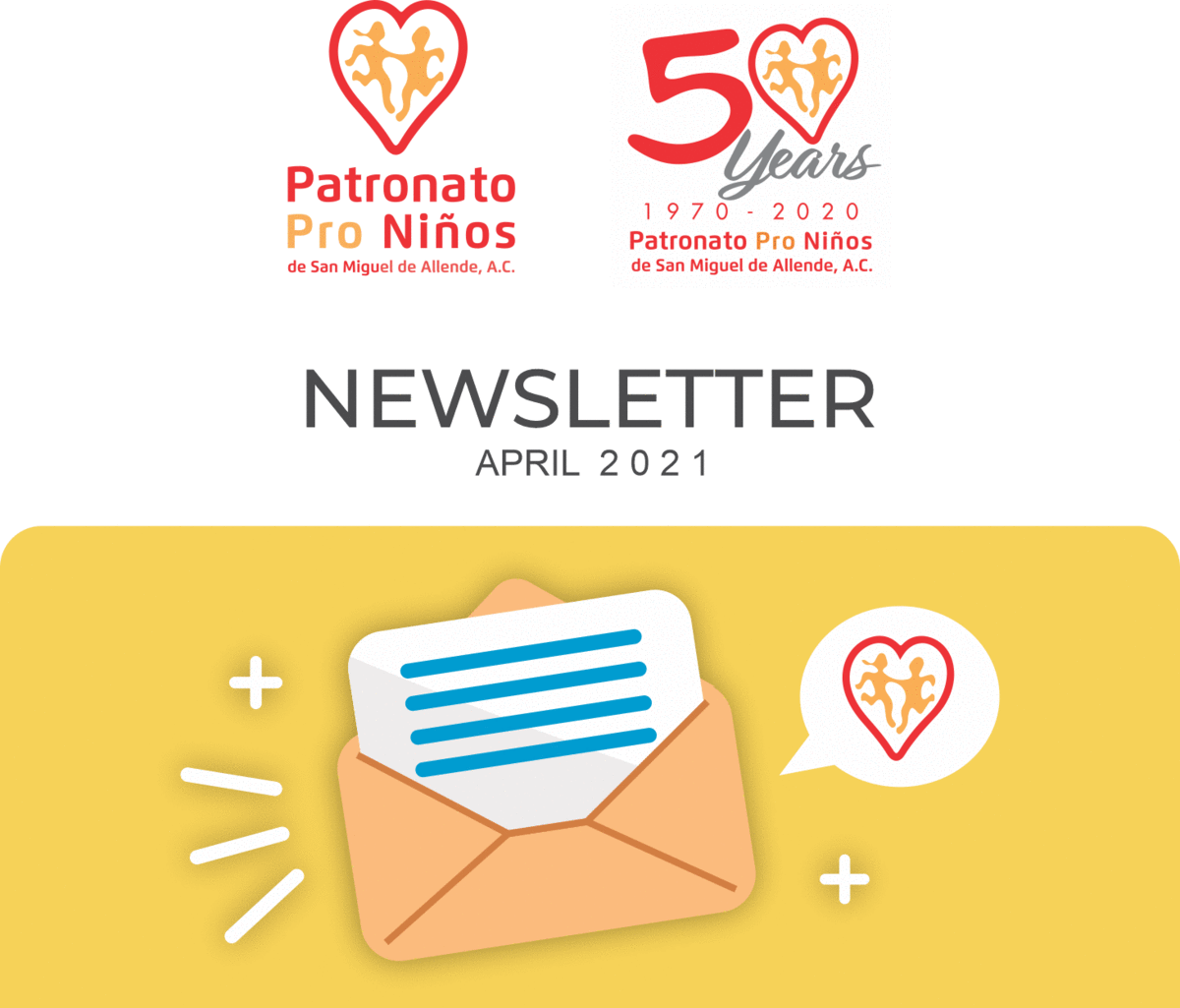

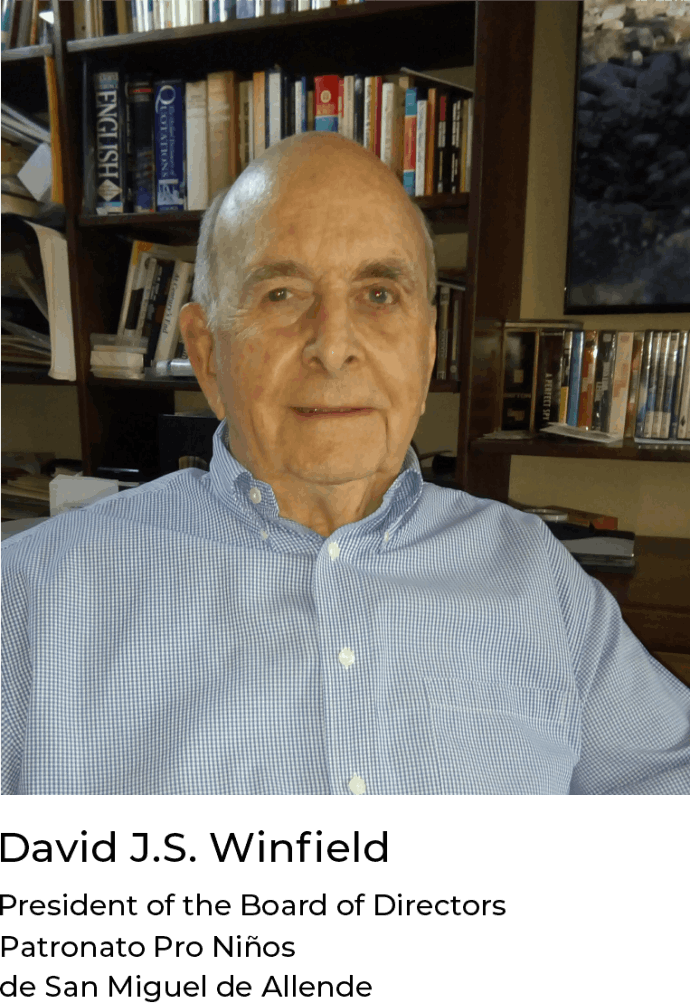
This past year has been extraordinarily challenging for all of us. I hope that you and your loved ones are managing to remain safe and healthy through the pandemic.
April 30th is Children's Day, el Día del Niño in Mexico, a day to honour children as an integral part of society. It focuses on the importance of appreciating, accepting and loving children as well as championing their well-being. At Patronato Pro Niños, we aim to keep children healthy and save lives every day by being an all-inclusive provider of health services (medical, dental, psychological, and nutritional) for economically disadvantaged children in San Miguel de Allende.
In mid-March 2020, the clinic was closed, and the mobile units stopped their visits to the campo. Nonetheless, we continued to provide for the requirements of special needs children from March to the resumption of full services in September 2020.
The services we were and are able to offer are provided on a limited basis.
As a result of the mandated protective measures required, we are restricted in the number of children we are able to see. Further, with schools closed, we have had to adapt to how we reach and serve the children of the various communities we visit. Despite these challenges, we still managed to provide 8,108 consultations to over 4,200 children in our community last year.
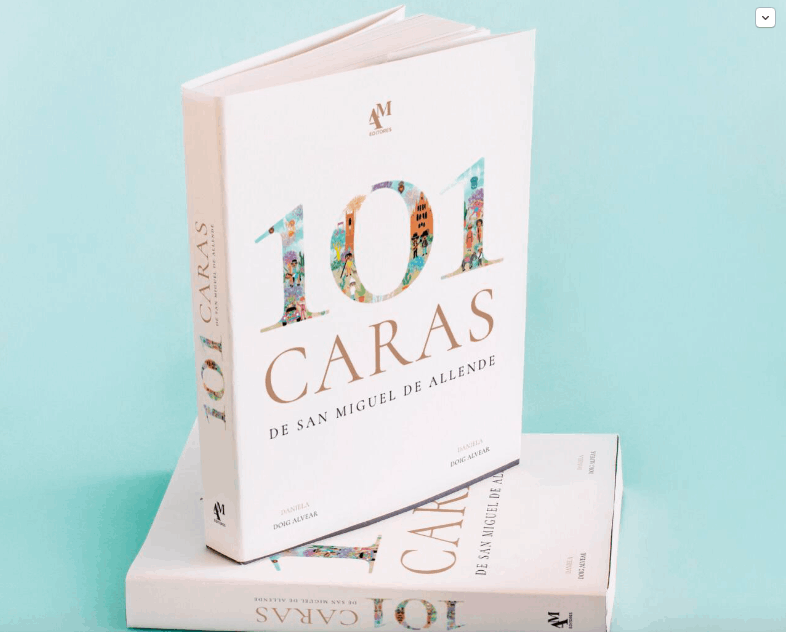
I want to thank all our donors and supporters for your continued support; without you, our work would not be possible.
In this regard, I would like to offer a special note of thanks to Daniela Doig, who recently most generously donated 50 books to Patronato Pro Niños. Daniela is the author of 101 Caras de San Miguel, a bilingual book honouring 101 special people who have contributed to making San Miguel such a wonderful place in which to live. The book also highlights the work of many years of Daniela's husband's grandmother and our only living founder, Maria de Los Angeles Herrera de Williams.
If you would like a copy of one of these beautiful books, they are available here:
All proceeds from the sale of the books directly benefit Patronato Pro Niños and the children we serve.
In conclusion, Children's Day is an important reminder to celebrate the children in your lives. We at PPN celebrate and champion children's health every day. The children we provide services to have no access to healthcare or dental care in their communities. PPN attends to their needs at the Children’s Health Centre in Col. Ignacio Ramirez, and we visit them in the campo with our five mobile units to ensure they have access to these vital services. We will be able to continue to do so thanks to the generous contributions of all our donors and supporters.
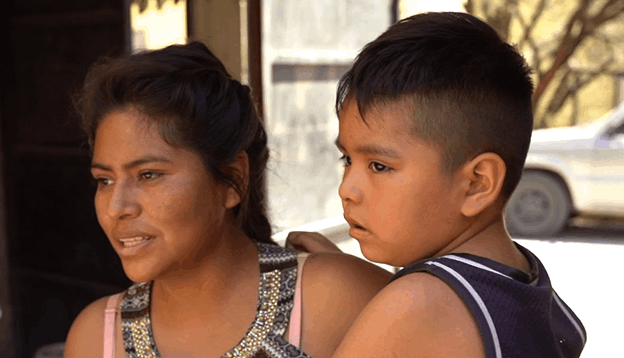
Bryan Omar is six years old and has Autoimmune Encephalitis (AE), a severe medical condition in which the immune system attacks the brain, impairing function. AE is a serious condition, with approximately a 6% mortality rate. While rapid diagnosis and appropriate treatment allows many patients to recover most or all functions, a significant percentage of patients have persistent symptoms that negatively impact their ability to function.
If not treated, the condition can lead to progressive neurologic deterioration and loss of life. Thanks to your generous support, Patronato Pro Niños can assist Bryan and his family with treatment and medication costs. As a result, Bryan is improving every day!
Help us to change other children’s futures.
> Become a Donor (patronatoproninos.org)
Now this a very sobering number: 30% of non-profits in the U.S. fail in their first 10 years of operation.* Indeed, according to Forbes Magazine, over half of all non-profits stall or fail within a few years due to leadership issues, financial issues or lack of a strategic plan.
Clearly, the volunteers at Patronato Pro Niños (PPN) were not aware of those disheartening statistics. It is true that throughout the 1990's it was more and more difficult to "make the numbers work": in 1991, when Pro Niños served 800 children, they took in $121,525 and spent $123,535. If you know your Dickens, you would recognize his formula for "misery."
The economic recession in the United States in the early to mid-1990s meant that donor contributions were slowing: at the same time, inflation in Mexico was surging. However, Patronato Pro Niños was still funding major medical services like cleft palate repair, heart surgeries in Mexico City, corrective eye surgery, and buying orthopedic shoes.
Everything was becoming more and more expensive. Expenses soared, and the archives contain minutes of emergency Board meetings focused on cost-cutting. Significant retrenchment was required. A difficult decision was made to focus on paying only for critically needed major surgeries (including laboratory workups, X-rays and diagnostic testing), which meant discontinuing payment for medicines. At this time, Doctors in town were encouraging parents to pay for medication if they possibly could afford to. If they could not, there was a list of pharmacies who would charge prescriptions directly to Pro Niños at a substantial discount.
Demands on financial resources came from many directions. At times, Patronato Pro Niños was asked to take on the treatment cost that had already started in a hospital without prior consultation or approval.
A process was undertaken to determine families' economic status to see if they could contribute something towards the medical treatment, even if it was just a few pesos. In truth, it was just a fact of life here that the existing medical services were already overworked and under-resourced.
According to a donor appeal letter, medical doctors were generous and co-operative during this period of financial strain: services were provided at "the most reduced prices imaginable." A local doctor in Centro shared his office space with Pro Niños at no charge.
Stirling Dickinson even offered to cancel the free shoe program for a year (the distribution of free shoes was the Niños "calling card," giving volunteers access to the ranchos where they identified children with severe medical conditions.) Donors came to the rescue by specifically funding the purchase of shoes. And once again, Stirling's dusty van headed out into those rugged hills. By 1997, his handful of volunteers had been organized into a group of 28, going out to over 200 rural communities.
There were bright spots even in this challenging decade of austerity: Stirling Dickinson, volunteer extraordinaire, completed his 1,000th rancho trip in 1991! A bilingual cookbook called "Viva Comida" was published and enthusiastically received. And the Historical Walking Tours of San Miguel started in 1993, on Friday’s mornings only. The first Tour made a grand total of 18 pesos from 3 visitors to San Miguel who were naturally enchanted by our beautiful town.
Almost 30 years later, the Tours are a significant contributor to Patronato Pro Niños' financial coffers and have expanded to include specialty Tours such as Architectural and Churches and have become a vital source of volunteer engagement and profile building in San Miguel.
And the ongoing financial support of regular donors as well as the support of charitable foundations, continued to help children who needed prolonged and expensive treatments.
"Spring Break" was a real breakthrough fundraising concept that was launched in the mid-1990s. A play on the popular college study break in March, "Spring Break" enticed groups of adults, like garden club members, for example, to visit San Miguel and discover our charming city. The week-long trip would be at the visitors' own expense, but a significant part of the vacation package would be tax-deductible.
They would be hosted in the homes of friends of Pro Niños. Over the course of a week, these special people were provided with rounds of private dinners, art gallery previews, cocktail parties and of course, there were presentations from master storytellers like Stirling Dickinson. An essential item on their itinerary was a trip out to the campo led by Stirling himself, where they saw firsthand the difference that their donations could make, as well as the distressing circumstances that these impoverished children lived in. Since the guest accommodation and the food, beverages, classes, and tours were, for the most part, donated, the generosity of the San Miguel community meant that one week brought in tens of thousands of dollars. "Spring Break" was a resounding success and still continues today.**
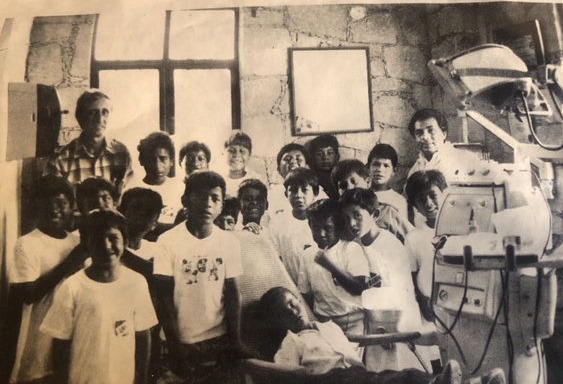
During the 1990's San Miguel's Public Hospital offered more and upgraded medical services for all Mexican residents. However, PPN continued to be the source of funding for many major medical services, including the entire range of laboratory testing, MRI's in Queretaro, and cancer treatments in Mexico City. As medical practices became more sophisticated, PPN was charged with the responsibility of taking care of fewer children, but at more expense.
The challenge became one of making difficult tradeoffs: does Pro Niños fund a very expensive treatment for one child at 40,000 pesos or for 10 children for 4,000 pesos each It fell to the compassionate Pro Niños volunteers to make those difficult, sometimes heartbreaking decisions.
A retrospective about the 1990s must include Luisa Velte: she was the primary writer of those inspiring yearly Newsletters that garnered so many donations. In one Newsletter, she eloquently expressed the Pro Niños difficult situation: "It would be nice if every peso we spend would produce a success story we could pass on to you (donors). Such is not always the case. All we can promise is to give the best care possible to every child who needs us".
But there were better times ahead: from 2000 to 2010; San Miguel de Allende experienced a boom in the migration of residents from the United States and worldwide. They brought with them their passion for making a difference in the lives of the less fortunate in San Miguel.
* National Center on Charitable Statistics.** "Spring Break" is an important fundraiser, and the intention is to continue when the COVID crisis is past.
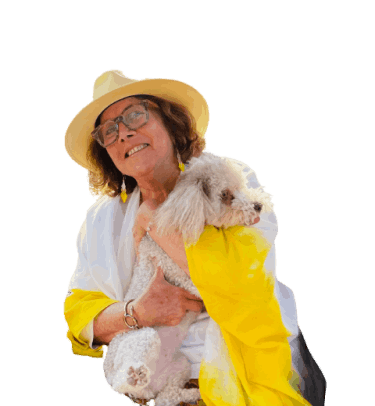
In San Miguel, we are fortunate to have many residents who have found their calling (or even second careers) working with and donating to worthy causes here. In Lyne Daroff's case, you might say that being deeply and broadly generous is in her DNA. She was very much influenced by her father, Samuel H Daroff, who "often told me the simple equation for getting involved is: just having a feeling life has more to offer than your own financial gains and that you must be concerned with the fate of other people."
Lyne learned early on to follow her father's compassionate example: she remembers raising money as a young child by putting on a dance show in her parents' home to benefit an orphanage in Atlantic City. Although his involvement with children's organizations in Philadelphia meant that she often did not have as much time as she wanted with her father, she came to understand and appreciate his perspective. Thirty years ago, she became a mentor to a 6 years old in Aspen, Colorado, with whom she is still very involved.
Lyne did not just leap into supporting the first non-for-profit she encountered when she arrived in San Miguel 2 years ago. She had already been introduced to the Patronato Executive Director, Nory Contractor, through a mutual friend in Miami and was impressed with her enthusiasm and dedication. However, she did her own due diligence on the organization, taking a tour of the Clinic and office, seeing the Mobile Medical/Dental Units, and attending excellent fundraising events where she met like-minded people who shared her vision. She saw firsthand how hard working all the staff is and how much they all care about the beautiful Mexican children and their future. In her own words, "I knew that supporting the health of these children was the perfect fit. Having been in the medical field for many years, I knew how these children's future depended on their mental and physical health. Living in San Miguel could offer me the opportunity to help these children. "
Even during the pandemic's dark days, when all live fundraising events were cancelled, Lyne continued to support Patronato Pro Niños. A virtual fundraiser last July 4th delivered beautiful food baskets to Lyne and all those who contributed, and she created her own July 4th party with all of the fabulous goodies.
Lyne has lived an adventurous life as well as a generous one: her most exciting experience was diving with hundreds of Hammerhead Sharks in the largest Shark biomass in the world in the Galápagos Islands. She dropped off the dive boat into a strong current and held on tight to a rock to watch the show go on around her. A well-travelled diver, she recalls this experience as a high point in one of the most spectacular dives sites in the world.
Her father was celebrated internationally for his dedication and hard work on many worthwhile projects: his greatest honor was when he received a citation of merit from Israel's former Prime Minister David Ben-Gurion, and the Man of the Decade Award of the State of Israel for his innumerable services to Israel's growth and development. She attended that dinner and remembers how thrilled he was. Many moments of public altruism led to that moment of personal triumph. She recognizes her father's exceptional contributions and reflects on where her own motivations and his intersected: as Lyne declares, "You must believe in the thing you are working for, think about it, care about it, and then do something about it."
Nory Contractor enthusiastically affirms Lyne's philosophy and says: "She is a wonderful donor, an enthusiastic supporter of all our efforts, and we only wish we had 100 more like Lyne Daroff".
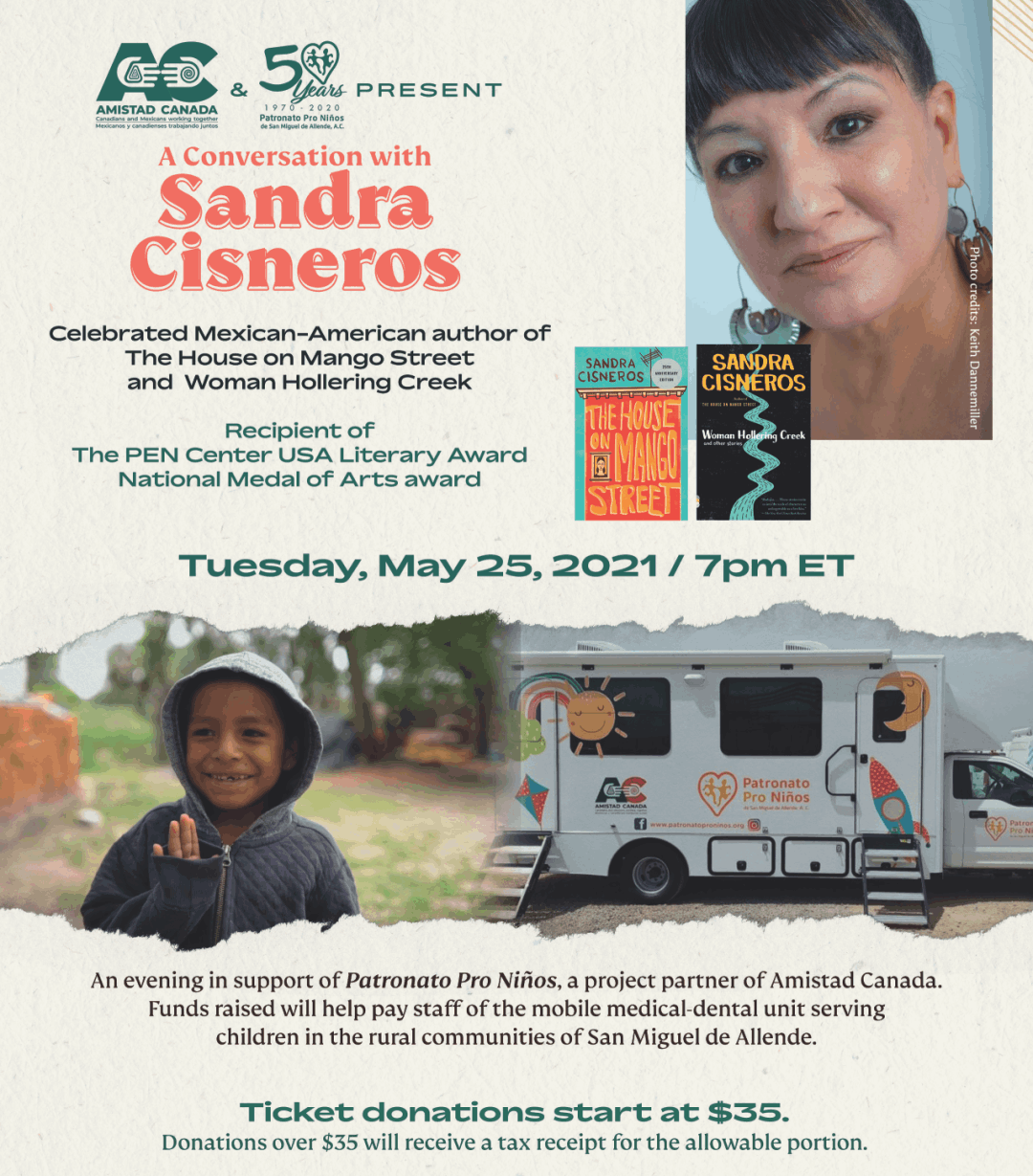
Cisneros has much to teach us about life, love and loss. Born in Chicago to a Mexican father and Mexican-American mother in a family of 7 children, she has documented her own development from being a shy child who did not shine in school to becoming one of the most important Chicana writers of her generation. In an essay entitled "Only Daughter," she writes, "I am the only daughter in a family of six sons. That explains everything."
Cisneros brilliantly explores gender expectations, adolescent insecurity and the love-hate relationships that undergird many families. In her essay 'An Ofrenda for My Mother', she writes "I became a writer thanks to my mother, who was unhappy being a mother." How ironic it is that as a child, this world-class writer thought books only lived in libraries. She had never seen a bookstore and didn't know that a person could buy a book. But every weekend, her aria-singing and long-suffering mother took Sandra and her six brothers to the public library where they could enjoy books. On Sundays, they went to museums in Chicago because that was the day when they could enter for free.
In 2011 Cisneros was a keynote speaker at the San Miguel Writer's Conference and Literary Festival. She writes, "I've decided in advance I won't like San Miguel- too many ex-pats- and I am ashamed and surprised when I do."
In fact, she liked it so much she moved to San Miguel in 2013 from San Antonio, Texas. One hundred years after her first ancestors travelled north to the U.S., Sandra reversed the journey and returned to Mexico and her Mexican roots. She writes, "Home is the place you become yourself." San Miguel is now lucky to have Cisneros as a resident, a thoroughly bi-cultural writer who has made thousands of her readers love Mexico.
And we are all lucky to have an opportunity to hear Cisneros on May 25th.
SHARE THIS NEWSLETTER!